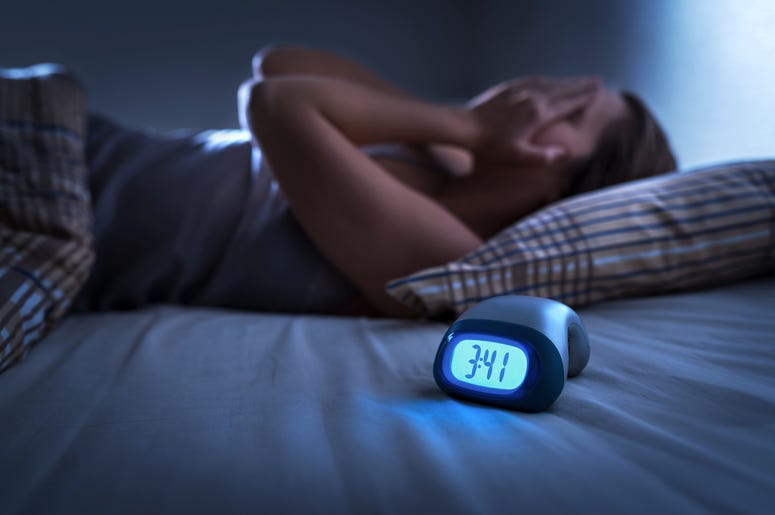Are you noticing that you wake up groggy and tired every morning? Are you having trouble falling asleep? There are many things that can impact your ability to get quality sleep. From the temperature and lighting in your bedroom to your actual diet, you may find certain faults within your daily schedule. Getting a good night’s sleep and waking up actually well-rested is possible, but you will need to do some preliminary troubleshooting.
Here are a few professional bits of advice to help you on your way:
*Make sure that your bedroom is dark and free of any natural lighting that may disrupt your sleep.
Light of any type in the bedroom can interfere with your sleep hormone production. It’s best to invest in blackout blinds or drapes that can ensure that lights from outside won’t bother you at night. It’s also important to limit or remove electronics in the bedroom in their entirety. Digital clocks, tech gadgets, and even your television can all work to hinder your sleep patterns. Lastly, if you know you have trouble getting to sleep, why not try wearing a mask at bedtime? It can help you block the lights in your room.
*Burn your energy throughout the day by getting plenty of exercise.
Not only does having a regular exercise regimen allow you to tire yourself out physically, but it can help you get to sleep faster. People that suffer from insomnia can greatly benefit from using exercise as a sleep aid. Even if you can only get a few minutes of physical activity going each day, it can make a world of difference!
*Avoid eating any heavy meals right before your bedtime.
Your stomach is easily overloaded and has to work extra after a large meal, which is why you should avoid going to bed on an overly full stomach. In fact, lying down with a full meal in your stomach may even make you feel sick or nauseous.
The best way to combat this problem is to eat your largest meal at midday. Reserve lighter foods such as jam or cheese for your dinner. If you must eat a heavy meal for dinner, make sure to give yourself at least three hours before you need to go to sleep. This will give your stomach ample digestion time.
*Skip drinking caffeine or alcohol before bedtime.
Drinks that are caffeinated can make your heart rate go up, and that’s something that can negatively impact your ability to get to sleep. It is best to stick to drinks that do not contain any stimulants, such as milk or juice.
Many people wrongly believe that drinking alcohol before bedtime can serve as a sleep aid. Contrary to popular belief, though alcohol does indeed make you sleepy, it is actually classified as a stimulant. Additionally, alcohol can also have a direct impact on the amount of quality sleep you get.
*Avoid logging onto your phone before bedtime.
Are you guilty of checking your phone before heading off to bed? We’ve all been there! After all, what can a quick glance at social media hurt? The fact is that the blue light from your tech gadget screens can actually mess with your melatonin production, which is a sleep hormone that induces drowsiness.
You can certainly place a blue light filter on your phone, but why not read a book or a magazine instead? It’s a much better way to wind down and prepare your mind and body for rest.
*Too much noise will always disturb your sleep patterns.
Listening to noisy neighbors, traffic or even your snoring spouse can all cause a disruption in your sleep patterns. It’s important to have a quiet bedroom environment in which you can sleep. For some people, earplugs or a white noise machine can help them get to dreamland.
It’s also important to consider your flooring if you have laminate or hardwood. The sound of footsteps can easily echo and disrupt your sleep patterns. Try placing some area rugs in your bedroom to cushion against sound.
*Keep your bedroom tidy.
There is a scientific reason to keep your bedroom tidy. The human brain interprets clutter and mess as things to do, it can be very difficult to relax in a cluttered environment. Ensure that you have plenty of storage in your bedroom, Ashley’s furniture quality is excellent. Take a few minutes each day to tidy up and keep your bedroom calm.
*Make sure to keep your bedroom relatively cool.
Did you know that your body’s temperature naturally drops when you go to sleep? For this reason, having a cooler than normal indoor bedroom temperature can help make you feel drowsy and actually induce sleep. If you live in an area with clean and breathable air, why not leave a window open to let in a cool breeze? Even having a fan in your bedroom can help you not only cancel out noise, but circulate the air to make it more breathable. In short, turn off your heater and leave your thermostat at a comfortable cool temperature.
